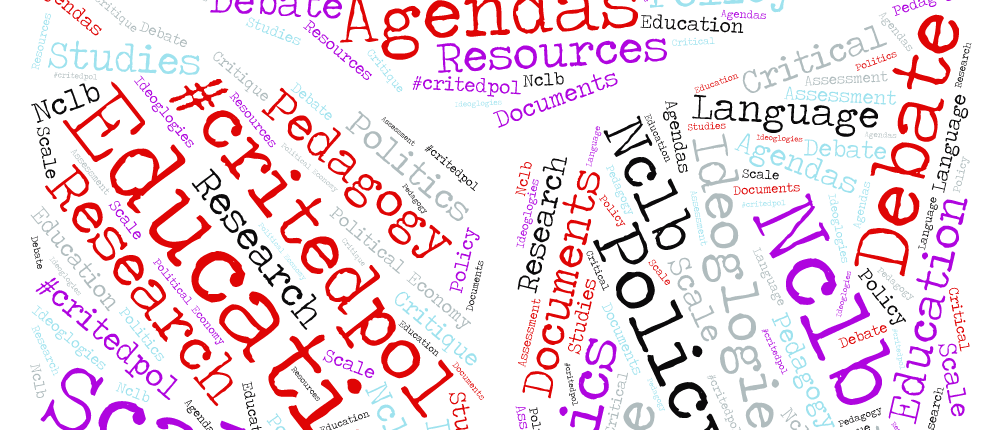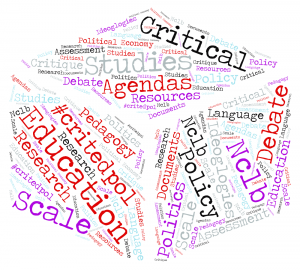Critical Policy Studies Reading Guide
Having worked with graduate and undergraduate students and organizing with educators and families I’ve found that we don’t have enough discussion around policy. To be real, reading policies and reading about policy issues can sometimes be tedious and challenging. Policies often use a lot of jargon that only a few people are familiar with, and often people and communities who are most directly affected by policy (people like you and me) are not the ones that know the jargon. When you start hearing someone speak about a policy, you might be ready to just “check-out.” But when we “check-out” there is no one who can really stop policies from being implemented, and often policies about us, but without our input (without us) can have some harmful effects.
One way to better understand policy and speak back to policy is to get better at reading policy, critically.
At the heart of this critical way of reading policy are some questions:
- What is policy?
- What do policies do?
- Who writes policy?
- How do polic(ies) impact our lives? Our communities?
- How can we change and influence policy?
Below are a growing list of questions/prompts that you can use when you are looking at policies or policy issues that are the basis of the Critical Policy Studies reading guide. The idea is to help to think through policy (see more at the bottom about critical policy studies).
The Google doc version of the document can be found here
This is currently in draft phase, and if you want to be part of putting something more comprehensive together contact Edwin Mayorga emayorg1@swarthmore.edu
Critical Policy Studies Reading Guide (Draft)*
Edwin Mayorga
Identifying the Issue/Problem
- Identify research relevant to the policy issue.
- What is the policy issue/policy problem?
- Are you addressing the issue on local, state, national, or global scale?
Reading Policy
- If you are looking at specific policy document(s), what is stated in the text?
- If you are looking at policy issue(s) what are some of the key ideas, language, or discourses articulated in these policy discussions?
- What are the directives included in the polic(ies)?
- How will the policy be funded?
- How will the policy be evaluated for effectiveness?
- What are some of the legal and legislative aspects of the policy issue that must be pay attentioned to?
Historical Background
- What information can you gather on the formation of the specific polic(ies)?
- On what level is this policy formation work taking place (local, municipal, government, federal)?
- What aspects of the historical context are of particular relevance to the formation and implementation of the policy?
The Policy Players
- Who are the players (people/organizations/institutions/governing bodies) involved in the policy discussions/debates today?
- What are the central arguments each of the players articulate regarding the policy discussion?
- Who is the target of the policy?
- Who is involved in the formation of the policy?
- Who is excluded from the policy formation process?
- What are the relationships amongst those who are involved in policy discussions.
Analysis of Pre-existing Policy
- What are policy responses to the issue that already exist?
- What effects did they have on the issue?
- What can you find out about the economic aspects of the policy currently and historically (Funding, funding sources, budget constraints, implementation costs, etc)?
- What effects do existing policies have on people?
- What are the strengths of the existing polic(ies)?
- What are the critiques of the existing polic(ies)?
Policy Recommendations
- What are your recommendations for action and policy change?
- What strategies are you recommending to address this issue?
- Are these strategies reflective of current social conditions?
- What are you think will come of these policy changes?
- What kind of financial, political, and social support would be needed to make this recommendation happen?
- Why are your recommendations the direction policy makers and citizens should go with respect to this issue?
Policy Evaluation
- How will you evaluate the effectiveness of the proposed polic(ies)?
- Are the specific outcomes you had sought to foster, happening?
- Are the strategies you opted for understood and thought of as useful by the people this issue is affecting?
Animating your Recommendations
- Who would you need to engage in order to move your policy recommendations forward?
- How would you go about framing the issue and your recommendations to make them appealing and viable?
The Google doc version of the document can be found here
A word about critical policy studies (for those are who are interested in that):
Critical policy studies (CPS) draws on a number of scholarly traditions, including critical theory, sociology of policy, and anthropology of policy. CPS is an evolving perspective that counters views that frame policy as an apolitical, “intrinsically technical, rational, action-oriented instrument that decision makers use to solve problems and affect change” (Shore & Wright, 1997, p. 5). Instead CPS views policy as social phenomena that are connected to socio-historical context, ideologies, institutions, and individuals involved in the formation and implementation of policy. . Policies can take the form of specific documents or document sets. Policy also references the issue(s) that documents, directives, legislations, and funding structures that, together are used to respond to the issue(s). As social phenomena, policies have “important economic, legal, cultural and moral implications, and can create whole new sets of relationships between individuals, groups and objects” (p. 6)
*


